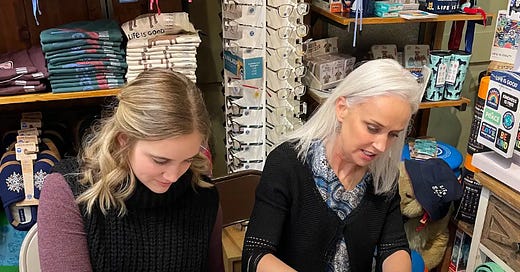The Full Story with Alayna
With Friends of The Full Life. Introducing, Alayna Burke author of "“Full: Overcoming Our Eating Disorders to Fully Live"!
For our very first non-provider Full Story interview we have Alayna Burke. Alayna is a student at the University of Missouri and is in recovery from her own eating disorder. When she was 18 she decided to document her recovery journey with her co-author, Melissa Kelley, and publish Full: Overcoming our Eating Disorders to Fully Live. She graciously agre…
Keep reading with a 7-day free trial
Subscribe to The Full Life to keep reading this post and get 7 days of free access to the full post archives.





